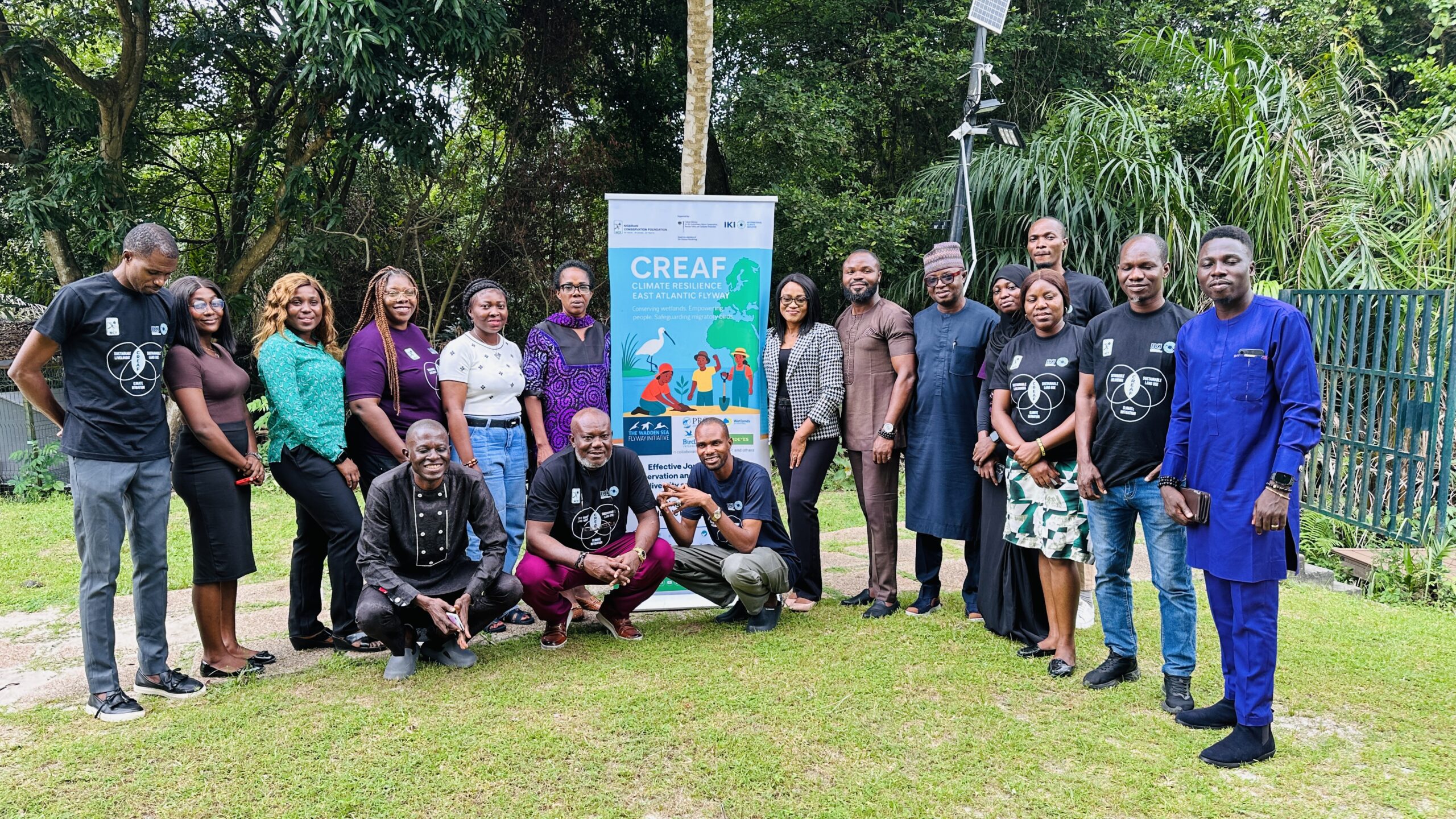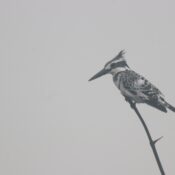
Empowering Environmental Storytelling: Highlights from NCF’s Training on Climate and Conservation Reporting in Nigeria
Building Media Capacity to Protect People, Birds, and Ecosystems Across the East Atlantic Flyway
The Nigerian Conservation Foundation (NCF), in partnership with the International Climate Initiative (IKI) of the German government, recently concluded a two-day training workshop for journalists on “Enhancing Climate Mitigation Reporting for People and Birds in the East Atlantic Flyway.” The workshop, which took place at the Lekki Conservation Centre from July 16–17, 2025, aimed to strengthen the ability of journalists to tell powerful, science-based stories about climate change, biodiversity loss, and human well-being.
This initiative is part of the Climate Resilience for Critical Sites for Migratory Birds and People along the East Atlantic Flyway (CREAF) project, a global effort led by BirdLife International to safeguard one of the world’s most important migratory routes for waterbirds.
Why This Training Matters
The East Atlantic Flyway is a vital migration corridor for millions of waterbirds traveling between the Arctic and Africa each year. Nigeria, with its inland and coastal wetlands, plays a critical role as a stopover and wintering destination. But these habitats are increasingly under threat from climate change, habitat degradation, pollution, and unsustainable resource use.
Journalists are key to raising awareness about these environmental challenges. Yet, many lack the specialized knowledge and tools to report effectively on nature, climate science, and conservation. This training was designed to close that gap by equipping ten Nigerian journalists with the skills, data, and perspectives needed to report on these interconnected issues with depth and accuracy.
Day 1: Foundations, Context, and Critical Issues
The training opened with remarks from NCF’s Director General, Dr. Joseph Onoja, who highlighted the role of the media in shaping public understanding of environmental issues. He encouraged participants to use their platforms to influence policy and inspire public action.
Key Sessions:
· Climate Change, Biodiversity & Human Well-being – Dr. Stella Egbe provided an overview of climate science, greenhouse gases, biodiversity decline, and how these changes affect coastal communities.
· Birds, Wetlands, and the East Atlantic Flyway – The session showcased Nigeria’s critical role in protecting migratory birds and spotlighted the impacts of habitat loss and climate shifts.
· The Role of Journalists in Environmental Reporting – Mrs. Esther Omopariola delivered an inspiring session on science communication, ethical reporting, and narrative framing for environmental storytelling.
· Effective Journalism on Conservation and Climate Impacts – Mr. Kunle Olawoyin emphasized the role of the media in driving change and aligning journalistic stories with broader conservation and policy goals.
The day ended with a lively wrap-up session where journalists reflected on the day’s learning and raised real-world concerns—like the rising cost of chicken feed, connecting food security to environmental degradation.
Day 2: Field Experience, Story Mapping, and Practical Tools
Day 2 began with a recap and storytelling challenge, encouraging participants to creatively integrate environmental insights into real or imagined reporting scenarios.
Key Highlights:
· Solutions Journalism for Climate Mitigation – Mr. Kunle Olawoyin introduced the concept of reporting on climate solutions—such as mangrove restoration, renewable energy, and nature-based adaptation.
· Tools & Techniques for Bird and Climate Reporting – Mrs. Esther Omopariola walked participants through data journalism, satellite imagery, and accessing migration data. She also shared real-life reporting experiences and field challenges.
· Field Visit to Lekki Conservation Centre – Journalists toured the reserve, observed bird species and other wildlife, and documented habitat features. This hands-on exposure was used to develop story ideas grounded in field observation.
· Story Clinic & Open Discussion – Participants pitched story ideas and received feedback, followed by a roundtable discussion on challenges in environmental reporting, collaborative opportunities, and access to media grants and fellowships.
Key Outcomes and Takeaways
· Journalists gained a deeper understanding of climate-biodiversity linkages and the role of migratory birds as ecosystem indicators.
· Increased confidence among participants in reporting on climate change, wetland degradation, and sustainable livelihoods.
· Strong interest in integrating bird conservation into wider environmental narratives and public interest journalism.
· Identified need for continued support via access to experts, multimedia resources, and reporting fellowships focused on climate and conservation.
Solutions Journalism: A Way Forward
By the end of the training, journalists expressed their commitment to telling richer, more nuanced environmental stories that not only expose problems but also illuminate solutions. With continued support, these storytellers will help shape a more resilient future for people, birds, and ecosystems along the East Atlantic Flyway.
This workshop is a testament to NCF’s ongoing mission to foster informed environmental stewardship and community resilience in the face of climate change. Together, with support from partners like IKI and BirdLife, we are bridging the gap between science, policy, and public awareness—one story at a time.
Want to Stay Informed?
Follow NCF on social media @ncfnigeria to get updates on future training, fellowships, and media resources for environmental storytelling.


